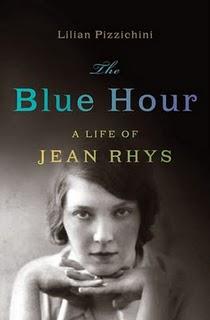The Blue Hour: A Life of Jean Rhys

There’s no shortage of texts examining Jean Rhys, the woman whose writing is as highly regarded among second wave feminists as it is among literature professors. Rhys herself was at work on a memoir when she passed away in 1979, leaving behind the collection of pieces that became Smile Please. Drawing upon this incomplete autobiography, Carole Angier published Jean Rhys: Life and Work in 1991, a more definitive tome linking Rhys’s life events to the people and situations in her fiction. It is in the wake of these books that The Blue Hour, a new biography written by Lilian Pizzichini, is delivered, and Rhys aficionados will justifiably wonder what this work adds. Does Pizzichini intend to endear Rhys’s work to a new generation through electrifying accounts of her life? Does she have new insights into Rhys’s upbringing or a different angle through which to explore the novels?
Pizzichini herself may not know what role her book serves; the foreword is unhelpful at explaining the title. It has something to do with perfume and “dogs hunt[ing] best during twilight.” In another strange choice, each chapter is prefaced by a summary of that section’s highlights. It remains to be seen why someone would buy a 300-page book to obtain a Wikipedia understanding of Rhys’s life.
The author does a serviceable job of depicting the most notable occurrences of Rhys’s early years in the British colony of Dominica, where she was brought up by a disinterested mother in a land rife with racial tension. But Pizzichini is relatively artless in showing Rhys’s discomfort as a white woman among former slaves. Pizzichini refers to the island’s population as “swarthy” and rushes through Rhys’s feelings about Black people:
One the one hand she envied them, on the other she feared them. She was entrenched in stereotypes […] Yet she knew that they hated because they had been hated. Although they laughed loud and long, she noticed they seldom smiled.
This disjointed quality is characteristic of Pizzichini’s prose, which will offend grammar snobs with its syntactical slip-ups. (“Her father, apart from the nuns, had been forgotten.”)
The book report style persists as Pizzichini follows Rhys to London through her stint as a student and chorus girl, where she goes from penniless to courted by male admirers with clothes, flowers, and money. Although the novels and stories are only occasionally referenced in Pizzichini’s work, it’s clear that Rhys’s personal experiences seeped into every book– her fashion choices, unpleasant run-ins with other women, financial struggles, and affairs. Rhys may have been her own best biographer, not in her memoir but in her fiction, which captures the strange pains and joys of living a life largely dependent on male patronage. One of Pizzichini’s strengths is how she parallels the content of Rhys's narratives and life. But her depiction remains lifeless.
Ultimately, The Blue Hour’s downfall isn’t a lack of information or research; it’s the dullness with which they’re recounted. We’re given occasional asides about the prevailing styles or social codes of the day, but we never fully enter another place and time. We’re told how Rhys feels, but we don’t experience it ourselves or even sympathize with it. When Pizzichini writes “she often found that when she told people her story, they looked at her with disbelief in their eyes,” countless feminist readers will feel an instant kinship with Rhys. It’s a shame that the rest of the book will dismantle much of it.
I didn't mean that last post to be anon. Thanks, peace,
Diane
Great concept for a site. You have important work to do, so I won't keep you. Will be looking forward to more. Thank you, peace and all good things for you in feminist lit advocacy and in life. Sincerely,
Diane